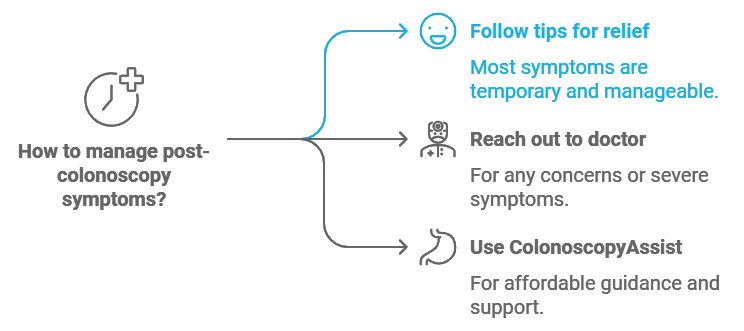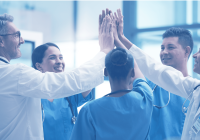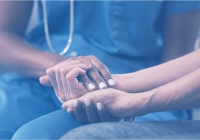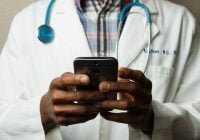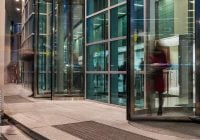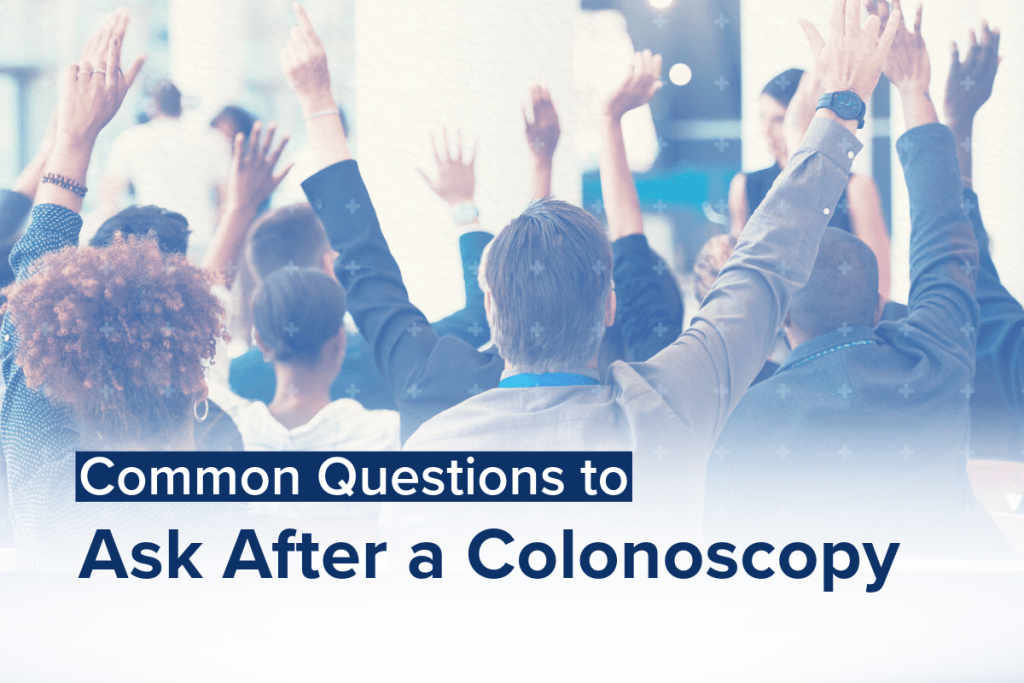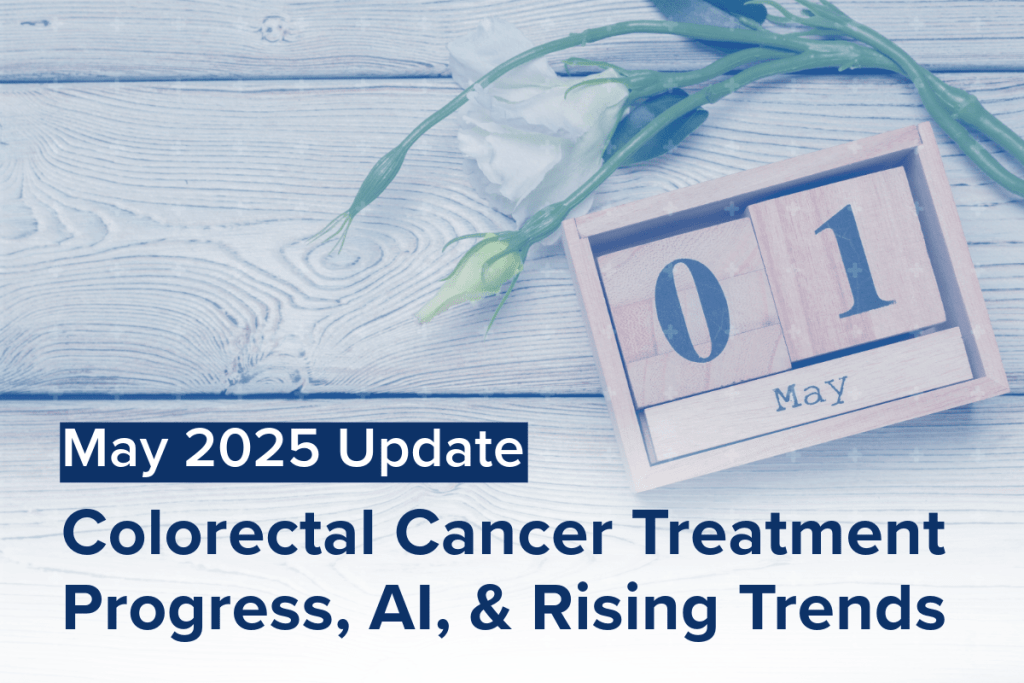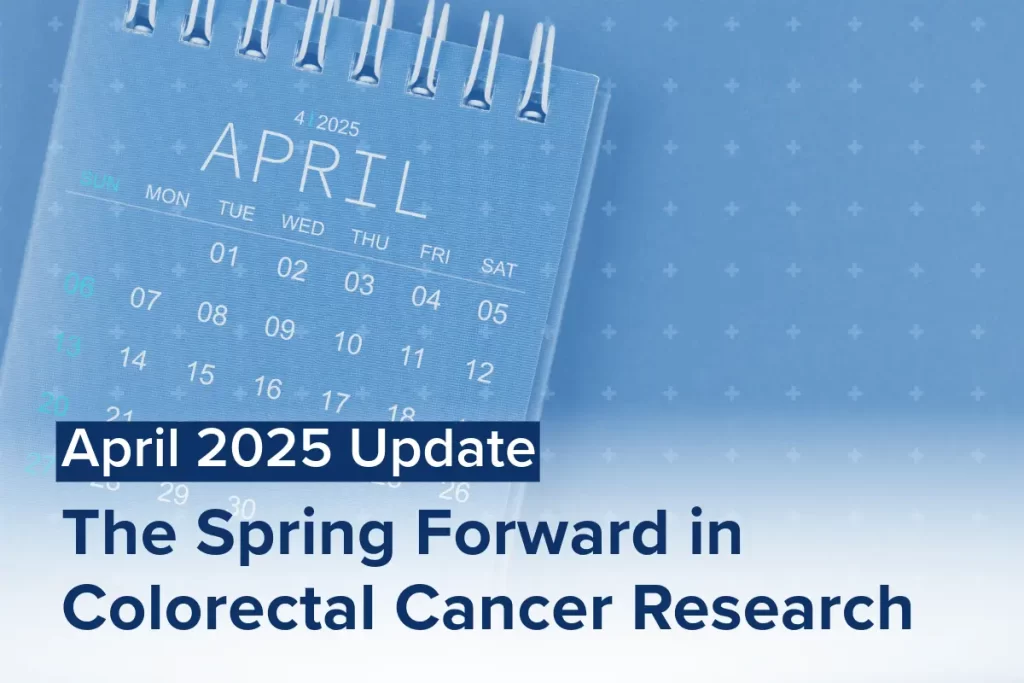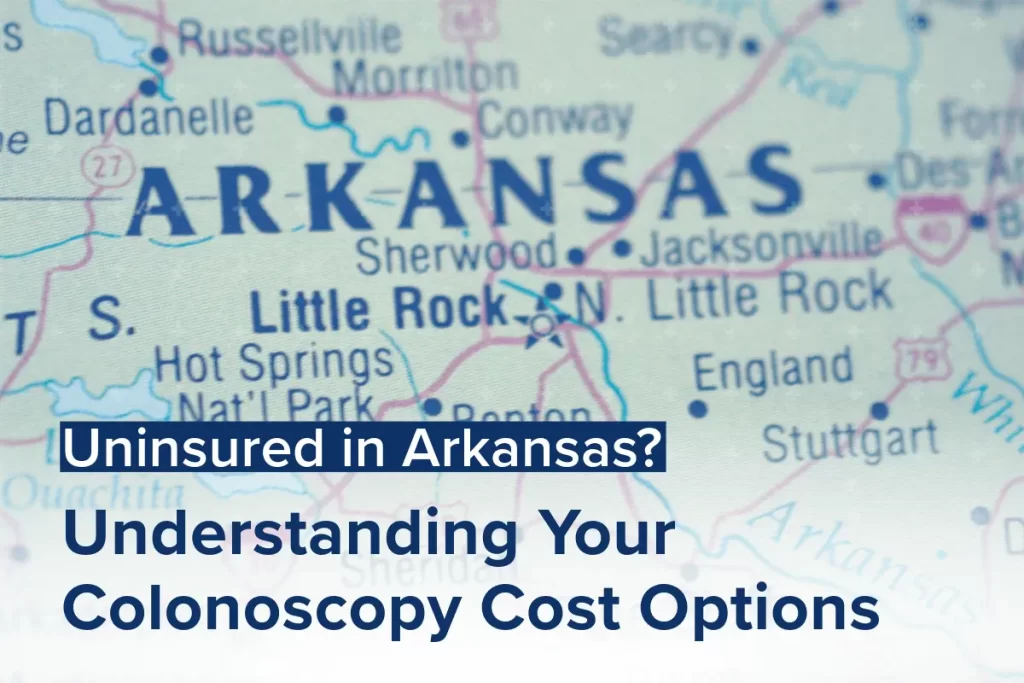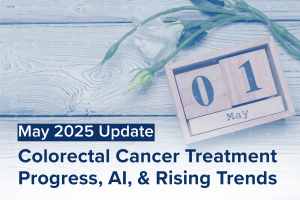Table of Contents
After a colonoscopy, you’ll likely have questions about the recovery process, especially if it’s your first time. Knowing what’s normal, how to manage post-procedure symptoms, and when to reach out to your doctor can make recovery easier.
This guide will answer common questions patients have in the days after a colonoscopy, helping you feel informed, prepared, and comfortable.
For a more comprehensive understanding of insurance coverage for these procedures, visit Insurance and Colonoscopy: Understanding Your Coverage
Bowel Problems After a Colonoscopy
Post-Colonoscopy Bowel Issues
It’s normal to have bowel issues after a colonoscopy. The sedation, fasting, and bowel prep can all affect your digestive system and cause changes in bowel movements. Some people notice their bowel habits are off for a few days, but this is usually temporary and part of the recovery process. Knowing this can give you peace of mind as your body adjusts.
Per the National Library of Medicine, “After a colonoscopy, minor complications including abdominal discomfort, bloating, nausea, diarrhea, and constipation can occur.”
Constipation After a Colonoscopy
Fasting and bowel prep can cause temporary constipation. To help with it:
- Drink plenty of water.
- Eat fiber-rich foods like fruits and vegetables to get things moving again.
- Light activity, like gentle walking, can also help stimulate bowel movements.
If constipation persists beyond a few days, consider a stool softener, but check with your doctor first. Constipation is rare, but if it doesn’t heal on it’s own, it should be discussed with your healthcare provider.
Diarrhea After a Colonoscopy
Some people may experience diarrhea after a colonoscopy as the body readjusts. This usually subsides within a day. To manage diarrhea:
- Drink water or electrolyte drinks.
- Avoid caffeine, spicy foods, and dairy, which can irritate the stomach.
If diarrhea is severe or lasts more than a day, reach out to your doctor to make sure everything is okay.
Gas and Bloating
How to Get Rid of Trapped Gas After Colonoscopy
Gas and bloating are common after a colonoscopy due to the air used to inflate the colon during the procedure. Here’s how to relieve it:
- Light exercise, like a short walk, can release trapped gas.
- Gentle stretches, like bending the knees towards the chest while lying down, can also help with discomfort.
Can you take Gas-X after a colonoscopy?
Yes, over-the-counter options like Gas-X can help with gas relief, but check with your doctor before taking any medication after the procedure.
Getting ready for your colonoscopy? Make your prep easier with our latest blog post: Colonoscopy Prep Tips: Guide to a Smooth Procedure.
Back to Normal Activities
Can You Work Out After a Colonoscopy?
- Wait at least 24 hours before exercising to allow the sedation to wear off. Start with light activities like walking, and wait a few days before intense exercise.
Can I Go to Work the Day After a Colonoscopy?
- Most people can go back to work the next day, but it depends on how they feel. If you still feel groggy or have lingering symptoms, take it easy. Listen to your body and rest as needed.
Can You Drink Alcohol After a Colonoscopy?
- Avoid alcohol for at least 24 hours after the procedure. Sedation can enhance the effects of alcohol, and staying hydrated is more important after the procedure. Drink water and other hydrating fluids to aid in recovery.
Can You Travel After a Colonoscopy?
- Long-distance travel is best avoided within 24 hours of the procedure to allow full recovery from sedation. If you need to travel, plan ahead as bowel symptoms can last a day or so after the procedure.
Do You Lose Weight After a Colonoscopy?
- Temporary weigt loss can occur from fasting and bowel prep, but this is usually regained once you start eating normally. This weight loss is short-term and not a long-term effect of the procedure.
Final Thoughts
Most symptoms after a colonoscopy are temporary and manageable. Follow these tips to get relief and get back to normal soon. If you have any concerns, reach out to your doctor.
Resources like ColonoscopyAssist offer clear colonoscopy price options and trusted support , helping you make informed choices about your health and well-being. Being informed makes the post-colonoscopy experience as smooth as possible so you can focus on yourself.
